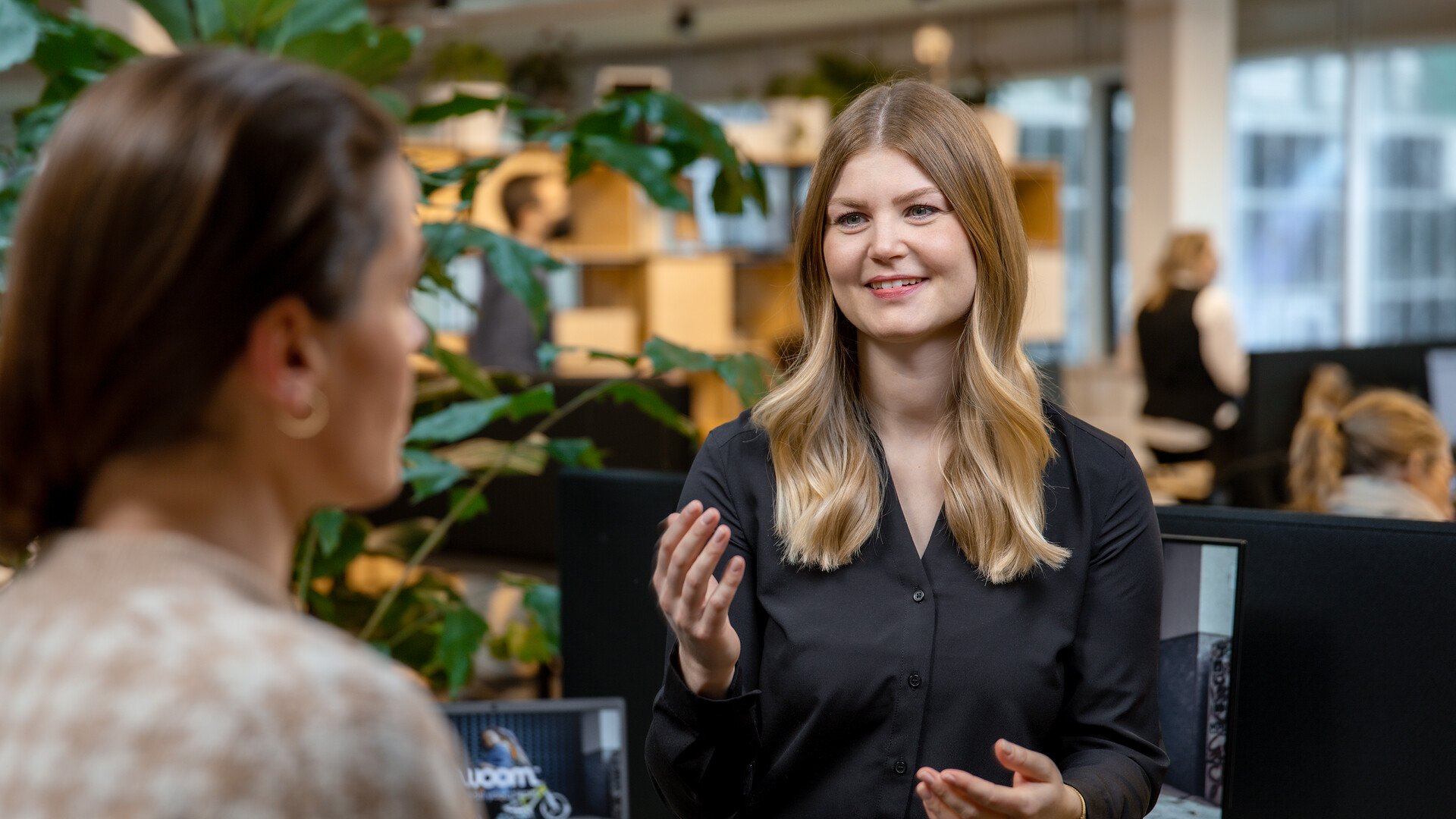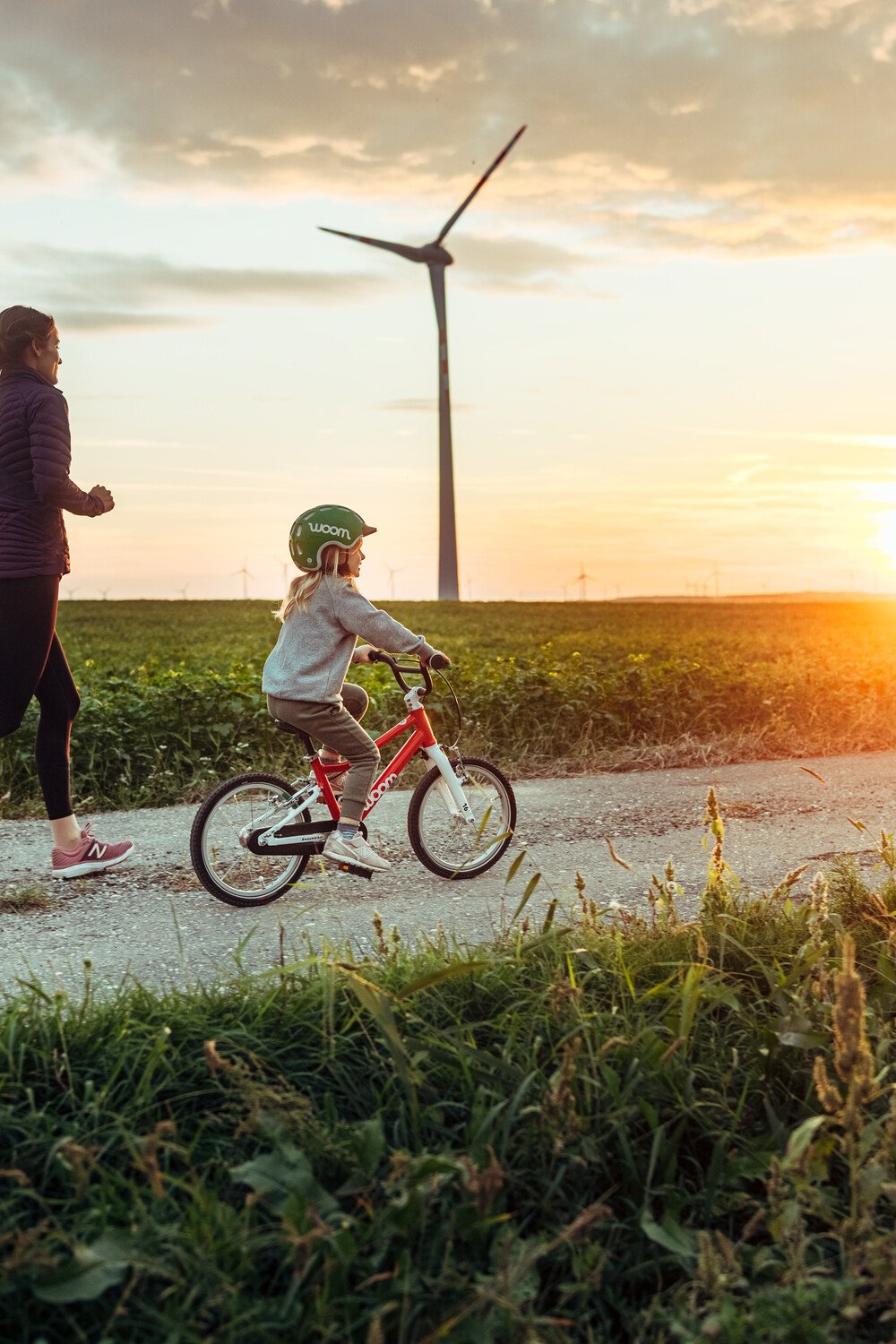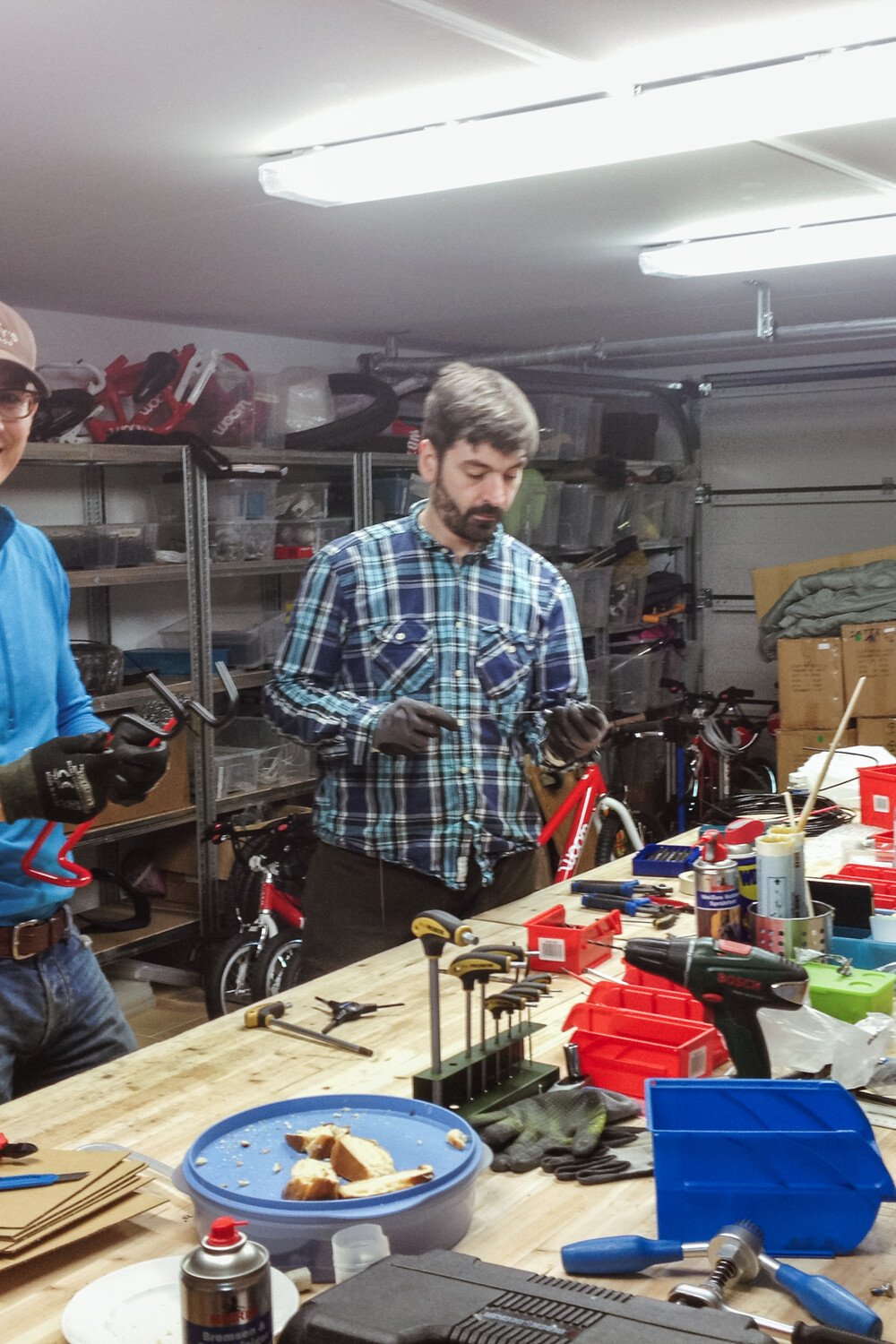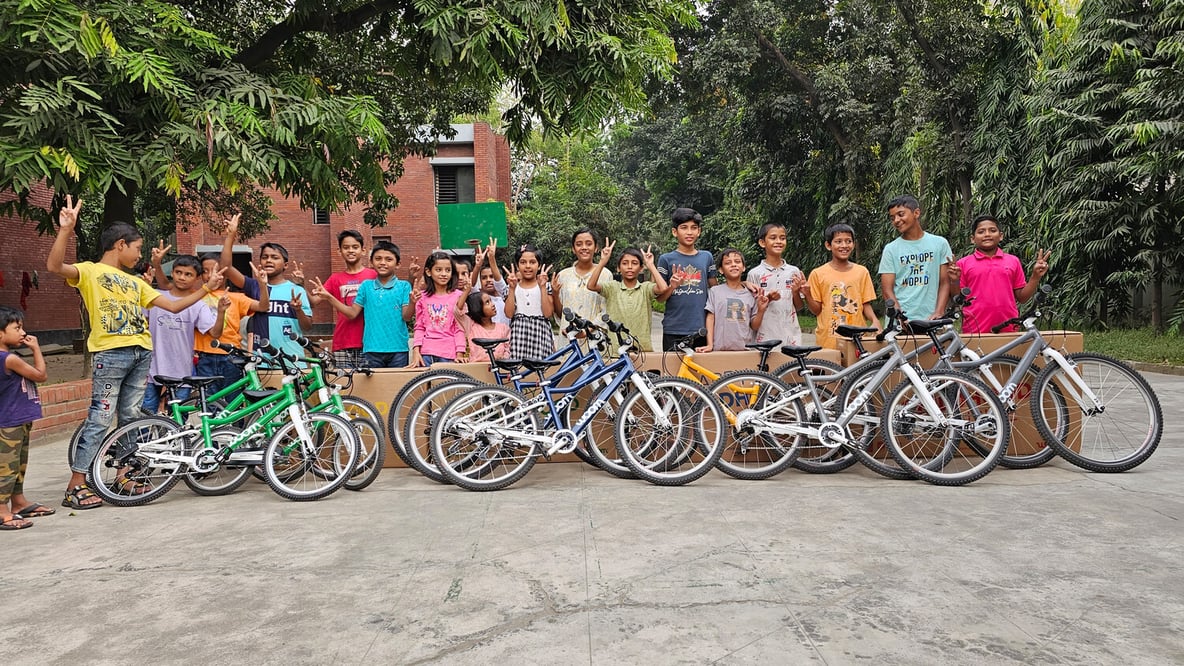woom ESG manager Anna Vahle: "What we do today shapes the world of tomorrow”
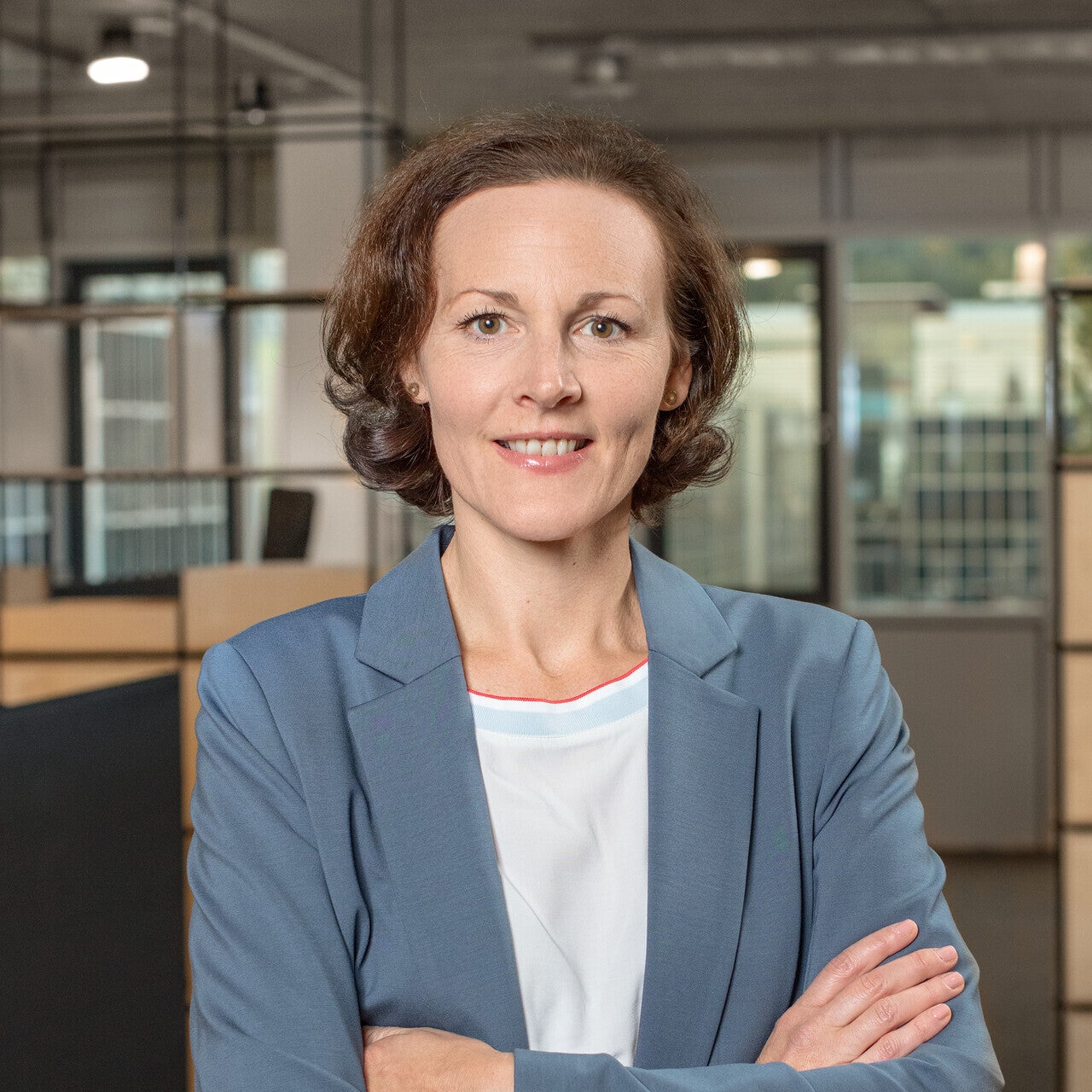
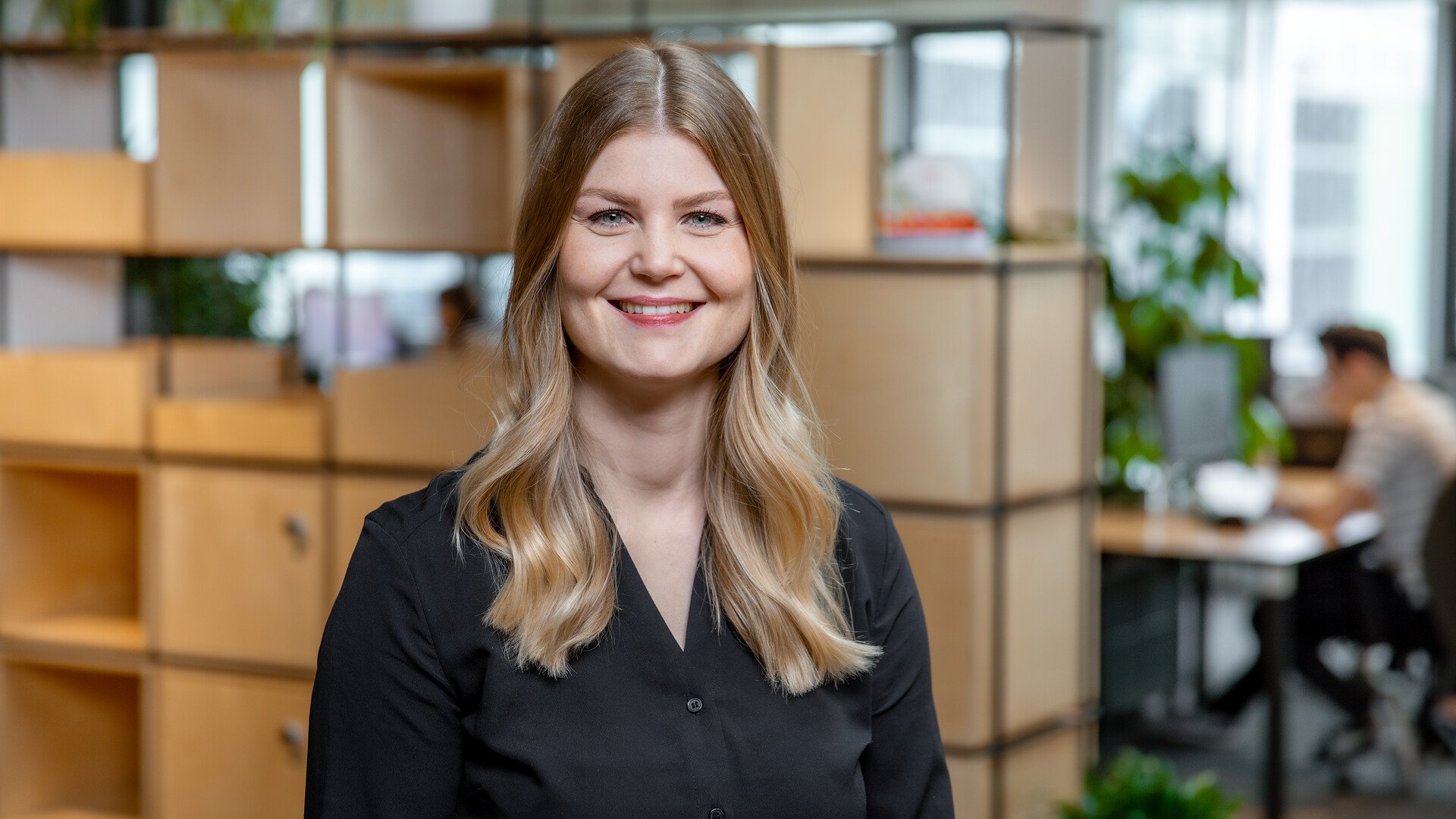
In this instalment of our interview series with woomsters we speak with woom sustainability manager Anna Vahle. Vahle has been with woom since 2021 and is responsible for making sure that environments and social sustainability is considered in every department and every business decision.
Sustainability is one of the central company goals at woom. This is evident in our product, which is designed to instil a love of cycling in children and thus foster a sustainable form of mobility. But this also applies to every aspect of the company, aspects that should not only be designed to be environmentally and climate-friendly, but also with an eye to social justice and fairness.
Sustainability is a particular challenge in a fast-growing company like woom, which is transforming from a small garage start-up to an international company. Anna has been on board since October 2021 to help us succeed at this goal.
She talked to us during a train ride between Wiesbaden and Klosterneuburg about how she is rising to this challenge.
1. Tell us about your first days at woom. Why are you here and not somewhere else?
It was a wild start, and I hit the ground running. It was immediately clear to me that there were a lot of people here waiting for somebody who was 100 percent focused on the topic of sustainability. Although, sustainability was always a key issue at woom, up until that point the issue had not been approached systematically and in a focused way. That's where I come in. For me personally, this is a great opportunity to ramp up and shape how we approach the issue of ESG – environment, social and governance – here at woom.
2. What makes woom special for you?
You can feel the enthusiasm in every single woomster for the brand and the products. The positive atmosphere and the strong drive to make an impact define the unique woom spirit. The good energy and the doer mentality captivated me from the very start.
3. What does bike riding mean to you?
For me, bike riding means recreation. I think it's great to go on a bicycle tour in the summer, or to explore a new city and nature from a cyclist's perspective. In nature, I can relax and recharge my battery.
4. Sustainability is one of the big seven company goals at woom. What does mean exactly?
A woom bike already fulfils many sustainable-product criteria: it encourages healthy and environmentally friendly mobility. Thanks to its timeless design and high quality, a woom bike can be enjoyed for many years; it can be repaired well – woom offers spare parts for that. The bikes are also very lightweight, which conserves raw materials. A good product has a good start position, but having a good product alone does not make a company sustainable. Sustainability has to be rooted in the overall corporate strategy, holistically conceived, and supported by upper management.
5. How did you come to the issue of sustainability?
I've always been fascinated by the idea of sustainability. I studied textile and clothing technology. My bachelor's thesis involved an intensive examination of critical chemicals that are used in the production of water-repellent outdoor clothing. My study about a range of outdoor brands ultimately led me to the sustainability department (Vendor Control) at Jack Wolfskin
6. What was your first encounter with the subject and what fascinates you about it?
Sustainability means nothing more than thinking about what consequences our actions today will have on the world in the future. This allows us to create, if you will, the basis for the future of our children and our children's children. I find this idea fascinating. Of course, sustainability is also a factor in business success. To stay successful in the future, companies need to address the issue. These days, there is just no way around it. What I find particularly exciting is how the social pressure around a particular issue can often lead to political pressure on companies. A good example for this is Germany's Supply Chain Act (LkSG).
7. What company departments does sustainability include?
Sustainability is very complex and touches on just about every aspect of the business: from product development and design (e.g. material selection, product packaging) to purchasing and supply chain (e.g. supplier selection and sustainable purchasing practices) to logistics and transport (e.g. low-emission shipping) as well as finance and legal (e.g. reporting and legal compliance), employer experience (e.g. diversity and recruiting) and marketing. Sustainability also affects not only our own organisation, but also the upstream and downstream supply chain – that is, our suppliers and distribution partners.
Anna Vahle (30) has been the sustainability manager at woom since October 2021. Before that, the Dortmund native worked in the CSR department of the international outdoor specialist Jack Wolfskin. Anna commutes regularly by train from Wiesbaden to the woom headquarters in Klosterneuburg – her best ideas come to her on the train, she says.
8. A lot of companies see themselves as faced with unjustified accusations of greenwashing. How can we be sure that companies that tout sustainability are actually practising what they preach?
Greenwashing is the practice of a company presenting itself as sustainable without providing any verifiable basis – in other words, making a false claim. For us, that would be out of the question. By the same token, no company can become sustainable overnight. It's a long road that we tread, sometimes in little steps and sometimes in great strides. I think that, regardless of how good a company is, it can always do more, go farther, and get better. After all, the state of our scientific knowledge and the technical possibilities are also changing. Sustainability is not a goal that you reach, and then you're done. It’s an ongoing effort, a continuous process. Of course, it's clear that what we do – or don't do – today will determine how the world of tomorrow will look.
9. Can you be more specific?
For us at woom, it's important to set bold, but achievable targets, to formulate measures we want to implement and conduct periodic evaluations and reviews of our progress. We need to be honest and open about this. We need to talk about the road that we're on and communicate transparently with our customers about the various steps – for instance, in the form of a sustainability report or through regular updates on our website.
10. What's going to be your focus over the next few months here at woom?
I've spent the past few months doing a comprehensive analysis, and I've conducted a rigorous assessment of every department in terms of sustainability. In addition, we've calculated our carbon footprint. Based on the insights gleaned through this process, we've set concrete targets and defined measures that we need to implement. We've set the following areas of emphasis for this year: We committed to a CO2 reduction target, we have increased the scrutiny and monitoring of our supply chain, we are publishing our very first sustainability report, and we are currently in the process of drafting a code of conduct for woomsters. Added to this are numerous measures, some small and some larger: we have signed on to sustainability initiatives that establish ecological and social standards in the bicycle industry. We support communities and organisations that set standards for a transition to sustainable transportation. And, we at woom are creating our own initiatives designed to promote climate-friendly mobility of our woomsters, such as the woom Car Free Day.
11. Where do you think woom could do better?
The bike industry has long rested on its laurels based on the fact that bikes as such are sustainable products. That statement is fundamentally correct, but companies have gone a bit too easy on themselves. Awareness has changed in recent years in this regard: More and more companies in the bicycle industry want to take responsibility for the environmental and social impact of their business activities and look beyond the boundaries of their own organisations. This has resulted in some important initiatives, such as Bike Charter from BIKEBRAINPOOL or Shift Cycling Culture's Climate Commitment, dedicated to promoting a bike industry that is environmentally and socially sustainable. woom has joined both of these initiatives this year.
At woom, I see a real challenge in adapting processes and structures. On the path from being a start-up – where a lot was experienced but little was structured and documented – to an international company that is also growing extremely quickly, we still have a lot to do.
12. Companies have to turn a profit to survive. But, are profit and sustainability even compatible?
Sustainability and profit do not have to be at odds – quite to the contrary: companies that fail to be sustainable in the future will not be successful either. After all, customers are not the only stakeholders that want to buy sustainable products: banks and investors, for instance, expect good sustainability performance. Fortunately, statutory requirements are also moving in the direction that sustainability standards must be adhered to. Sustainability is certainly associated with costs at first, but should be seen as a long-term investment: Satisfied employees increase productivity, and production facilities can save not only raw materials and emissions but also production costs through resource-conserving and energy-efficient systems and technologies. There is a lot of potential here.
13. So, you come from the textile industry. Are there parallels between the bicycle industry and the textile industry?
Individual production processes are certainly different. But many sustainability-related issues such as sustainable design, transport, purchasing and production-specific elements such as raw materials, energy, water, waste, waste water, etc., as well as the social component, are relevant and transferable in both industries.
Compared with the bicycle industry, the textile and apparel industry has a big head start in sustainability – for the time being, least. For decades, the industry has been working toward more sustainable business practices. There are numerous established systems, standards, organisations and initiatives in both the environmental and social domains that you can join as a company or production site and make a huge impact.
In recent years, however, some interesting initiatives have also emerged in the bicycle sector devoted to advancing an ecologically and socially sustainable bicycle industry.
14. What's been your biggest challenge so far? And what did you learn from it?
I learned that sustainability can only be achieved as a team. Advancing this issue in a company and its supply chain takes a massive effort. It costs time and resources, and entails change that usually makes things more complicated or creates additional work. That isn't always well received, which is why it requires plenty of endurance, patience, and convincing. I've learned that you can achieve the best results when you involve internal and external stakeholders in the process, communicate in an open and transparent way, include everybody, and pursue goals step-by-step.
15. Who have you learned from, and who continues to give you tips for your professional success?
I don't have a single mentor. I draw inspiration from my professional surroundings: friends, family, current and former colleagues, and supervisors. People who ask the right questions, motivate me and help me to overcome my limitations again and again are sources of inspiration and role models for me.
16. What would your old boss say, what is your biggest USP?
That I have a talent for organisation.
17. What is your vision for your professional future?
I love being able to pursue a really sensible goal in my career: helping a company do business sustainably. My vision for woom is to make it a vanguard in ecological and social sustainability in the bike industry and in so doing making a positive influence on the whole industry. As individuals, there are limits to what we can achieve. But, as a community we have the biggest impact. That's why the ultimate goal should be to have a sustainable bike industry where companies, supply chain partners and other stakeholders all work together, share the same goals and effect real change.
18. What's on your personal bucket list for the next ten years?
I want to improve my Turkish, learn pottery and, some day soon, do a big tour of Asia.
19. You did an academic exchange semester in Istanbul. What drew you to Istanbul?
Travel has always been my thing. At 16, I spent a year at a high school in the USA; at 19, I travelled to Nepal with a friend to work as a volunteer teacher at a school. While at the uni, I was in Bangladesh, and then in 2015, I did the exchange semester in Istanbul. That's where I met my current partner. He was born in Germany but has Turkish roots. Part of the family still lives in Turkey, and at home in Germany a lot of Turkish is spoken. I can already speak it a bit, but I want to continue to improve it.
20. What is your vision of the future of mobility?
Most people tend to prefer comfort when it comes to day-to-day mobility. That's why we need mobility models that are easy, uncomplicated, safe and universally accessible for everyone, models that encourage people to leave their cars in the drive more often or abstain from driving them completely. Off the top of my head, I imagine carpooling, car sharing and bike leasing models that are gaining in popularity.
21. How do you personally practise sustainability?
For me, personally, sustainability means paying attention, living mindfully, consuming and questioning. In the process, I buy less and prefer to buy regionally produced goods; I don't eat much meat, keep my car in the garage, use power from renewable sources and avoid generating waste. You don't have to be perfect, and you don't have to abstain from everything. You can make lots of little tweaks that have a major impact as a whole.
WORDRAP
My office is: Open and bright with cosy, quiet corners to withdraw into.
3 things I'd take to a deserted island: A hammock, skin diving gear, and my partner – travelling is most fun with him.
A magic moment in my life was: hiking at 15,500 feet in the Himalayas.
My comfort food is: Pizza.
The way I relax is: Going for walks, preferably in the forest or by the seaside.
What inspires me: Discovering new things like places, activities and foods.
For me, sustainability means: Taking responsibility for my actions, mindfulness in how we treat the environment and other people to make the world of tomorrow a bit better.
